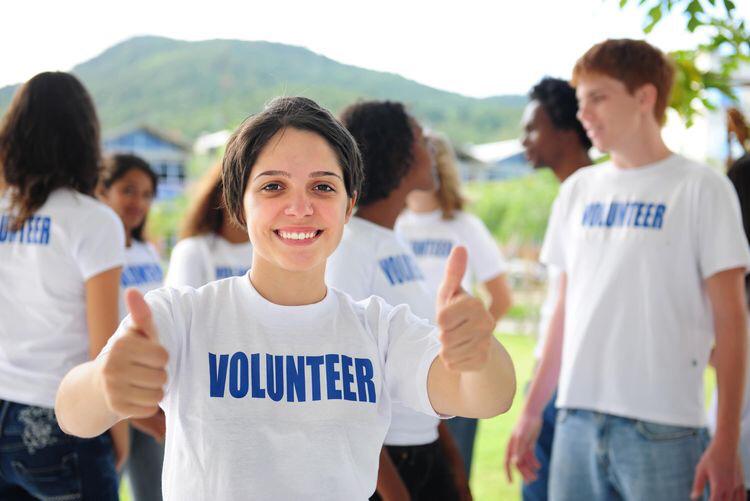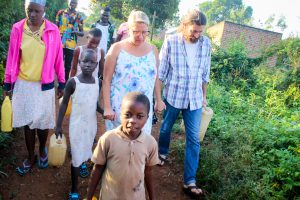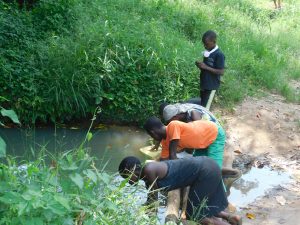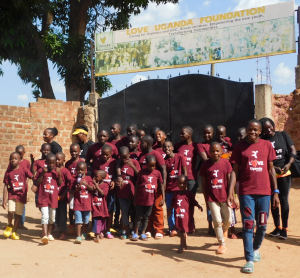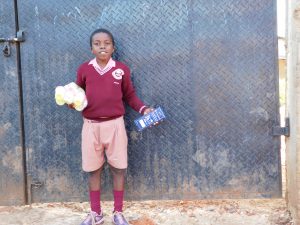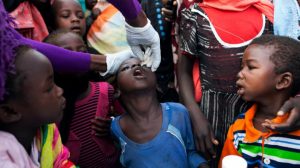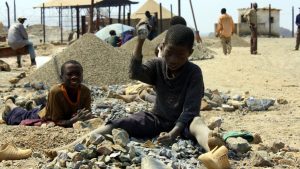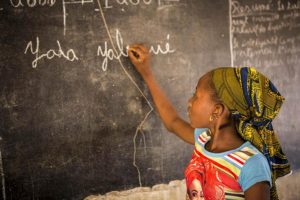Volunteering in Uganda during your internship holidays – A chance to impact lives while building your career.
Are you looking for internship and volunteer programs in Uganda? Look no further, here is everything that you must know about internship in Uganda. In this article, you will understand what doing your internship or volunteer program in Uganda means. You will also get an insight into the country’s need for volunteers and interns for economic and social transformation.
Know about Uganda
Located in the Eastern part of Africa is Uganda – the Pearl of Africa. The climate and geography of this nation have been a blessing to the natives. Uganda is one of the countries in Africa that were colonized by the British during the colonial days. She gained her independence in 1962 on the 9th of October. Since then, Uganda has been through thick and thin – from political wars to restoration of peace, fighting poverty, and then economic transformation up to where she is now. For about three decades, Uganda has registered tremendous success in terms of growth and development. This is evidenced by steady population growth to about 49,029,364 people in 2022.
Irrespective of Uganda’s achievements, she is still battling with problems such as HIV/AIDS, drought in some parts of the country, high mortality rates, to mention, domestic violence, Ebola Virus Disease (EVD), and of course the effects of the COVID-19 pandemic effects. This is the reason why Uganda needs as many intern volunteers as possible. Their innovation and creativity can be transferred to the vulnerable communities in Uganda and hence have an impact on growth and development.
In this guide, we are highlighting the guidelines that one should put into consideration before choosing which country or organization they are to volunteer with or do their internship.
Who is an intern volunteer?
An intern volunteer is a person who unconditionally sets out to identify with and participate in the work of an organization like Foot Print Volunteering Uganda through for the love, interest passion, and commitment to the work without expecting any financial or material reward. Material rewards, if they come, should be incidental to and not the primary motivation of the organization they are volunteering for. Usually, intern volunteers are students who are looking forward to finalizing their studies at a University or College. They usually use this opportunity to get introduced to the world of real work and hence apply the knowledge and skills acquired from their institutions of learning. Depending on one’s qualifications, the assignments given to Intern Volunteers relate to the Organization’s strategic activities or administrative and technical functions.
Internship volunteering as a response to Uganda’s call
Uganda has communities that need your services as intern volunteers both in the rural and urban areas. When you visit many orphanages like one under the Love Uganda Foundation, you will realize that there is a need for more volunteers in Uganda. In such a home, children who have been dumped on the streets are being taken care of. The only source of income for the sustainability of such a project is donations from child sponsors. It is true that the children are more than the sponsors meaning that there is more need for improvising.
Remember, that is just one orphanage out of thousands of them across Uganda. I have not talked about the number of cancer patients who are stuck in hospitals, teenage mothers on the streets of Kampala, the people of Karamoja who have been hit by famine and drought, and the refugees in the many refugee camps all over Uganda.
In regard to this, what you see as little service to you might be the only turning point for a street child in Uganda. Why sit on that construction skill yet some widows in Uganda live under ramshackle houses? Don’t you think you are doing someone a disservice?
Having that at the back of your mind, do not forget that many organizations in Uganda are open to volunteers from different parts of the world to come and render their services to the vulnerable communities in Uganda for the betterment of our future. The time is now, you do not have to wait anymore.
To Volunteer with Foot Print Volunteering Uganda, Click here
What to put into consideration before making the decision to do your internship in Uganda
Before you make your internship volunteering choices, there are quite a number of questions you have to answer. The questions regarding when, where, and with whom are most important during your volunteering choices.
For countries like Uganda, there are many organizations and fields one can volunteer in. However, all give a different internship and volunteer experience.
Below are a few guidelines that may act as a starting point while making your volunteer internship choices.
-
Purpose of Volunteering
The question of why are you embarking on that volunteer/internship project is very important otherwise you might get a nightmare. In answering this question, you should evaluate your own reasons in comparison with the reasons of the organization and the program you intend to do your internship volunteering with.
It does not make sense for a doctor to volunteer in a construction department when the hospitals needs them most. Such a scenario comes when the question regarding the purpose of volunteering is not fully attended to. Most of the organizations in Uganda usually specify the purpose of their internship programs in their advertisements.
-
Eligibility required by the program/volunteer organization
Different Organizations require eligible volunteers, those that will fit in the communities and the programs they are to volunteer in.
Age: Most of the projects require youth aged 19 years to about 40 years. These are the ones who are flexible and can fit in a dynamic environment.
Academic qualifications and fields of interest: Internships are usually reserved for students who have completed their first degree or those pursuing their postgraduate degree program (second university degree or higher) or technical/professional studies. However, there are some projects that demand more social skills than professional skills. This is why the applications are always open to all applicants.
Languages: Excellent spoken and written knowledge of English are the most common language requirements in Uganda. This is because English is the official language used in Uganda. You should bear in mind that most of the vulnerable communities in Uganda use local languages. This is why you should learn some words in the Ugandan local languages before embarking on a volunteering safari to Uganda.
Computer skills: Computers are the shape of this generation and their use in Uganda increases now and then. It is therefore important to have some basic computer skills such as the Use of Microsoft Word, Microsoft PowerPoint, etc.
Availability: It is important for you to know how much time the volunteer project is likely to require your services as well as how long you will be there. This will give you an opportunity to plan your stay in Uganda in regard to visa and passport acquisition. It is so bad to realize that you overstayed simply because of volunteering or you will have to leave earlier because your visa expired.
4. Check for who is recruiting Volunteers and the process of recruitment.
It is equally important to check for the organizations that are recruiting volunteers at a given period of time and in a given area. Most of the volunteers in Uganda are hired on a “Personal wish” criterion. Volunteers volunteer to Volunteer and just send in their applications. Sometimes it is based on a “First Come first served” basis. It is not a guarantee that you will be rendered an internship placement upon your application. Usually, organizations state boldly that “Only qualified candidates will be contacted” This is why you should try more than one organization while looking for an internship or volunteer placement.
-
Check for the terms and Conditions of services /Contract or agreement
Most organizations require that volunteers work on their terms and conditions, do not be overshadowed by them and you be oppressed. Volunteers/interns have rights for example you have the right to say NO or YES to things that are not in line with your expectations.
It is important to sign a contract before starting your internship or volunteer work. This acts as a check and balance tool for you and the organization you are working with.
-
Check for Remuneration
Check whether the organization will provide remuneration such as food, transport, allowances, medical insurance, and accommodation. Remuneration here does not mean salary. Below are some of the common remuneration terms and conditions;
- The organization does not remunerate or pay Interns/Volunteers.
- Costs and arrangements for travel, accommodation, and living expenses are the responsibility of Interns/Volunteers or their sponsoring institutions.
- The Organization accepts no responsibility for the medical insurance of interns/volunteers or for costs arising from accidents and illness incurred during an internship.
- Interns / Volunteers are fully responsible for arranging at their own expense health and other forms of insurance covering the period of internship with the Organization.
The Interns/Volunteers shall during the period of internship respect the agreed working hours and observe the norms required of staff of the Organization which may include;
- Conduct themselves at all times in a manner befitting their status as public servants.
- Not engage in any activity that is incompatible with the proper discharge of their duties with the organization.
- Avoid any action and in particular any public pronouncement which may adversely reflect the integrity required of them.
- Exercise discretion in regard to all matters of official business and shall not communicate to any person unpublished information known to them by reason of their position except in the course of their duties or by authorization of their supervisors.
- Interns are expected to respect the confidentiality of information collected or received within the organization.
- No reports or papers may be published based on the function obtained within the organization without written official authorization.
Benefits to the Intern/Volunteer
- Self-motivation.
- Exposure/experience and expansion.
- Satisfaction and participation.
- Contacts and networking.
- Learning and training.
- Guidance.
- Intellectual understanding.
- Responsibility.
- Assessment and evaluation
Benefits to the organization
- Extra working capacity in daily work
- A participant in planning and implementation of projects
Participate in the assessment/ evaluation of reports and analysis
Contribute ideas and solutions to working team(s)
Benefits to society
- The community or society should also have a common benefit:-
- Good citizenship among its young people, responsibility voluntarism, and resource development.
We believe that at this point you are just one step closer to your internship volunteering in Uganda. All you need is to make the right choice of Organization. Then start your journey of impacting the future generation.



